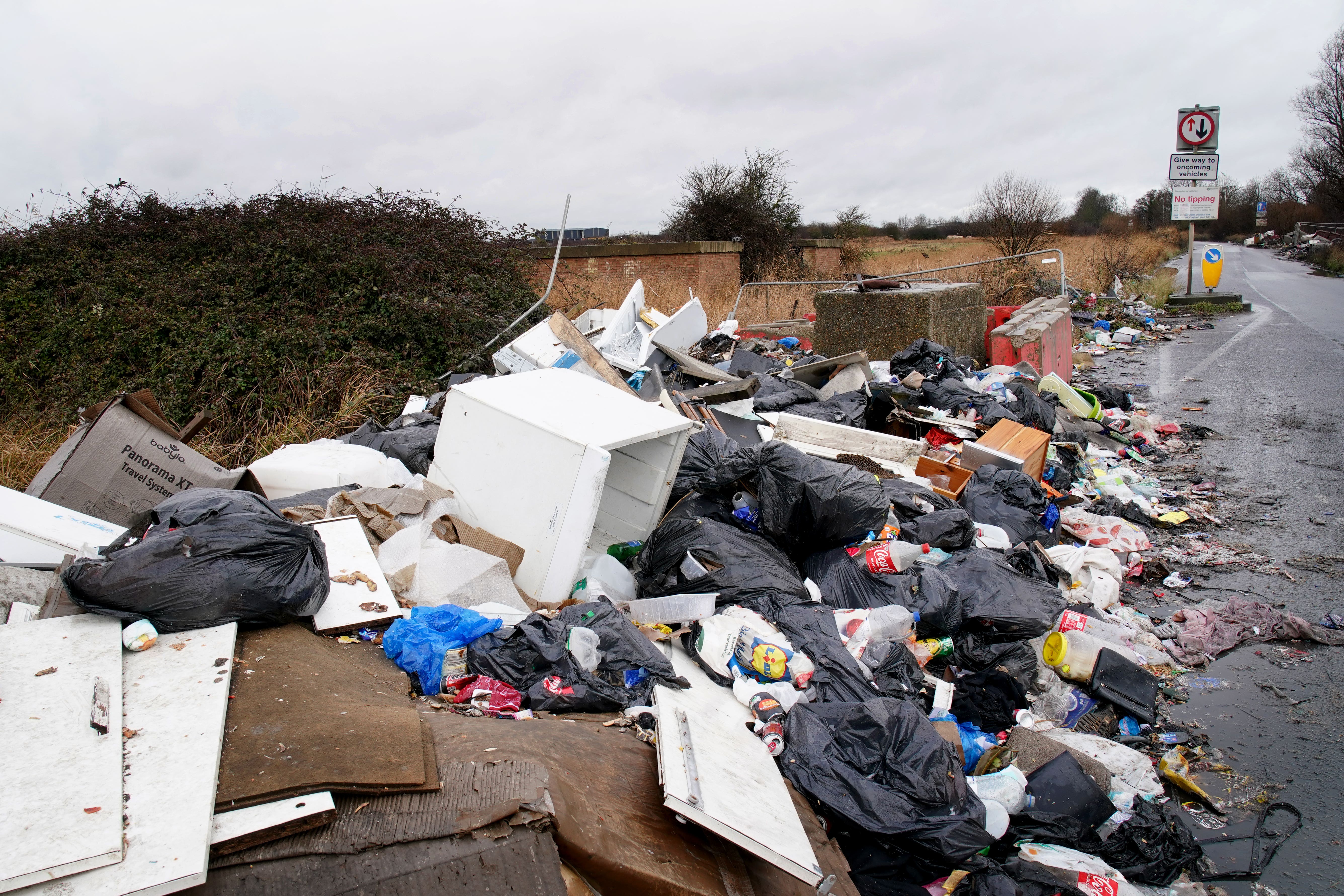Fly-tipping cases decrease by 4% in return towards pre-pandemic levels
London remained the most common area for fly-tipping, with 46 incidents per 1,000 people.

Your support helps us to tell the story
From reproductive rights to climate change to Big Tech, The Independent is on the ground when the story is developing. Whether it's investigating the financials of Elon Musk's pro-Trump PAC or producing our latest documentary, 'The A Word', which shines a light on the American women fighting for reproductive rights, we know how important it is to parse out the facts from the messaging.
At such a critical moment in US history, we need reporters on the ground. Your donation allows us to keep sending journalists to speak to both sides of the story.
The Independent is trusted by Americans across the entire political spectrum. And unlike many other quality news outlets, we choose not to lock Americans out of our reporting and analysis with paywalls. We believe quality journalism should be available to everyone, paid for by those who can afford it.
Your support makes all the difference.The number of fly-tipping incidents in England has dropped towards pre-pandemic levels while penalty notices have risen sharply, official figures have revealed.
A Government report showed local authorities dealt with 1.09 million incidents of dumped waste blighting highways and footpaths in 2021/2022, down 4% from 1.13 million during the pandemic in 2020/2021.
The decrease brings incident levels back towards pre-pandemic totals of 980,000. Incidents subsequently spiked during lockdown due to the temporary closure of household recycling centres.
Meanwhile, enforcement actions rose beyond pre-pandemic levels, reaching 507,000 incidents, an 11% increase compared with 465,000 in 2020/2021, while fixed penalty notices jumped by 58% to 91,000, compared with 57,700 issued the year before last.
Figures also show a sharp increase in court issued fines, which tripled from 621 in 2020/2021 to 1,798 last year.
Explaining the return to pre-Covid levels of fly-tipping and enforcement, the report said: “The first national lockdown introduced in March 2020 led to some local authorities being unable to maintain collections of dry recyclates, with some suspending garden and bulky waste collections.
“There was also a widespread closure of household waste recycling centres (HWRCs). HWRCs were later reopened following Government guidance on managing HWRCs in England during the Covid-19 pandemic but with some restrictions in place (e.g. booking system).
“These factors and other factors such as changes in household consumption, travel and leisure patterns may have contributed to the increases seen in the number of fly-tipping incidents reported for 2020/21.
“Staff shortages, staff being furloughed, and staff being redeployed may also have impacted on the number of enforcement actions which were carried out during 2020/21.”
London remained the most common area for fly-tipping, with 46 incidents per 1,000 people, a 7% increase from 2020/2021.
In comparison, the South West remained the cleanest region with just nine fly-tipping incidents per 1,000 people.
More than 40% of incidents involved rubbish dumped on roads and pavements, followed by 17% of fly-tipping taking place on council land such as housing estates, parks and car parks.
The majority of incidents involved household waste, but there was a 9% increase in those involving commercial waste and a 14% rise in dumping of single black bags.